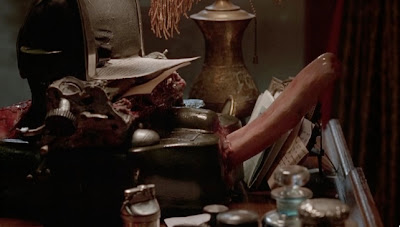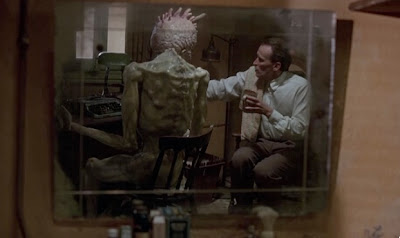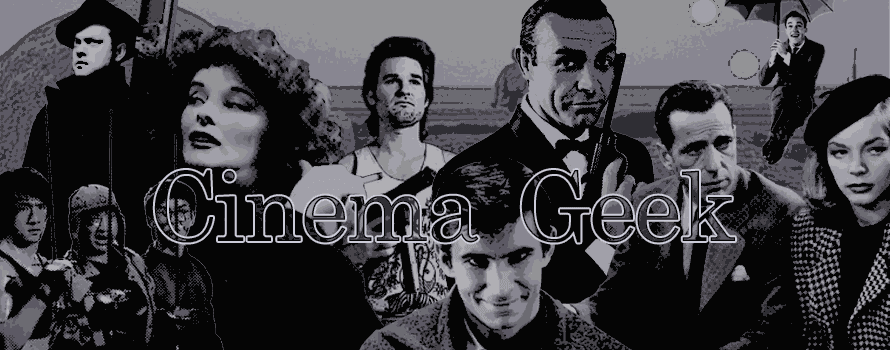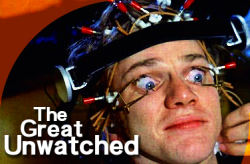
For some reason as of yet unknown, I decided recently that it would be a good idea to read William S. Burroughs' Naked Lunch. I had previously read all about Cronenberg's adaption in Cronenberg on Cronenberg and was instantly drawn to it. Clearly I was enticed by a book that could possibly feature a drug addict's stream of consciousness and giant bugs. Well let me tell you something. If anyone tells you that it's a good idea to read Naked Lunch--kick them. Naked Lunch may in fact be the craziest thing you will ever try to read. Nothing makes sense, nothing is linear, and it's barely readable. If you don't know already, this is the book William S. Burroughs wrote while he was in a state of constant high thanks to some crazy Moroccan drugs. Yeah.
After about 30 pages I gave up and moved onto Cronenberg's take on the story. Cronenberg's film is actually less of an adaption of the book and more of an interpretation. He used real incidents from Burrough's life, kept some of the same names and places and the film became the story of how Burrough's came to write Naked Lunch.
Now, I want to make it very clear that I know Cronenberg. I'm used to his style, and his constant need to include something that resembles a penis in anyway that he can.

I'm used to his themes of blending the physical with the psychological, and how he often intertwines the two as though they were one. I'm used to the overtly gooey style of blood and guts and I'm used to how amazing yet utterly mind numbing and weird his films can be. That being said, Cronenberg's Naked Lunch is the strangest movie I have ever seen.

Watching Naked Lunch is basically a film that you just have to watch. By that I mean, you really can't think too much while you're watching it or you'll get incredibly frustrated. Don't try to make sense of why typewriters are suddenly changing into giant beetles.

Don't try to come up with a sane approach as to why the type writer bugs have ginormous penis' and definitely do not try to make any big conclusions about drug use and its effects on the writer. Just relax, and take it all in on a visual level. Worry about the deep meanings later....MAYBE.

Here's the thing about Naked Lunch---I have no idea what the hell it means and I don't really plan on ever finding out. I would rather just sit and marvel at how completely outrageous the whole thing is. Naked Lunch is one of those films that oddly knocks you back into reality. It reminds you that you are NOT as smart as you think, and that no matter how hard you try--you will never be able to make a film quite like this. That's what always throws me off about Cronenberg. He isn't one of those directors that make seemingly genius films yet refuse to tell anybody what they really mean (cough David Lynch). Cronenberg however knows exactly what his films mean and he explains it and this is the best part---it makes sense!

To be honest, I'm not at all interested in what the true meaning of Naked Lunch is. I'm much more interested in seeing the way that David Cronenberg processed the book into a logical movie (well, logical as in it does have somewhat of a plot). I can't even fathom taking a book like Naked Lunch and converting it into a readable screenplay. And then to see what he did with it---how he took real elements from Burrough's life and somehow involved all these giants insects and penis' and men hiding in woman's skin--

it's kind of mind blowing. As if the very concept and idea of Naked Lunch wasn't mind blowing enough...David had to once again blow us away with his creativity and intelligence.
So what if we may never know what it means? What's so wrong about just watching a film and not trying to dissect it? If there was ever a movie that stood for "Not giving a fuck"--Naked Lunch would be it. Yes, it's probably the weirdest thing that Cronenberg has ever done and yes it's insane but good god, I think I love it--and that's all I really care about.







